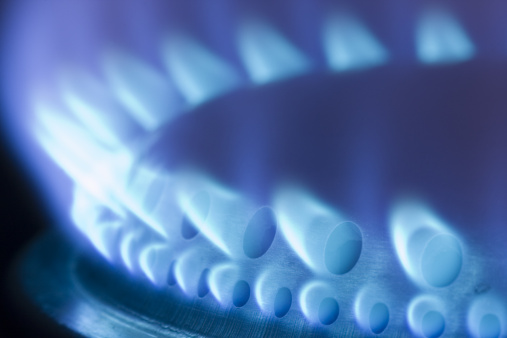
The EIA reported that U.S. working stocks of natural gas totaled 2.23 trillion cubic feet, about 308 billion cubic feet higher than the five-year average of 1.92 trillion cubic feet. Working gas in storage totaled 2.54 trillion cubic feet for the same period a year ago.
Natural gas prices have been getting a boost from nuclear power plant outages of around 16,000 megawatts this past week. Natural gas-fired plants typically respond to outages in nuclear power generation. Weather forecasts for the next 10 days call for continuing colder temperatures in the Midwest.
Here is how stocks of the largest U.S. natural gas producers are reacting to today’s report:
Exxon Mobil Corp. (NYSE: XOM), the country’s largest producer of natural gas, is down 0.4%, at $89.21 in a 52-week range of $77.13 to $93.67.
Chesapeake Energy Corp. (NYSE: CHK) is down 0.2%, at $20.10 in a 52-week range of $13.32 to $26.09.
EOG Resources Inc. (NYSE: EOG) is down 0.5%, at $127.54 in a 52-week range of $82.48 to $138.20.
The U.S. Natural Gas Fund (NYSEMKT: UNG) is up 1.4%m at $19.09 in a 52-week range of $14.25 to $23.38. The Market Vectors Oil Services ETF (NYSEMKT: OIH) is up 0.1%, at $42.98 in a 52-week range of $32.54 to $45.12. The first fund tracks spot prices; the second includes major drillers and services companies.
The Average American Is Losing Momentum On Their Savings Every Day (Sponsor)
If you’re like many Americans and keep your money ‘safe’ in a checking or savings account, think again. The average yield on a savings account is a paltry .4%1 today. Checking accounts are even worse.
But there is good news. To win qualified customers, some accounts are paying more than 7x the national average. That’s an incredible way to keep your money safe and earn more at the same time. Our top pick for high yield savings accounts includes other benefits as well. You can earn a $200 bonus and up to 7X the national average with qualifying deposits. Terms apply. Member, FDIC.
Click here to see how much more you could be earning on your savings today. It takes just a few minutes to open an account to make your money work for you.
Thank you for reading! Have some feedback for us?
Contact the 24/7 Wall St. editorial team.




